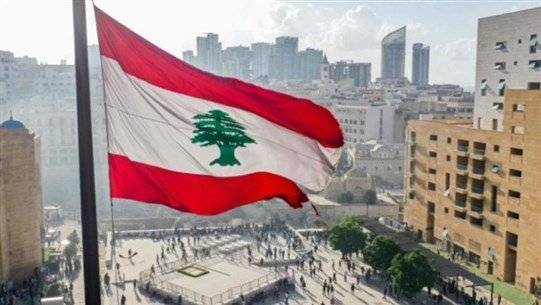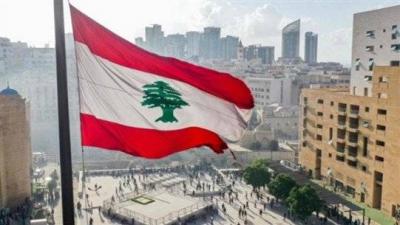The political landscape is crowded with urgent matters, prominently including the formation of the government and border demarcation. However, the presidential election is dependent on a series of interrelated factors that need to align before a decision can be reached. While discussions and approaches have begun, significant meetings are still required, and it's fair to say that there has been some activity, even though no candidates have emerged clearly, whether among known contenders or new figures. Political blocs and parties are assessing and preparing detailed documents regarding the presidential elections, though the absence of some parties has its justifications. The presidential file remains in its early stages, but this does not imply a lack of daily developments. Current discussions are focused on the qualifications and background of potential candidates, which many consider essential.
Once a government is formed, the picture will become clearer regarding the enthusiasm for advancing or sidelining this file, especially since a new government will assume the powers of the presidency after the current term ends.
On the external front, the presidential election is a topic among officials closely monitoring the situation in Lebanon. They fully comprehend that while some names floated in the media are acceptable, very few actually resonate. There is an awareness that certain names are being proposed for the sake of elimination and that some names rise and fall in prominence over time. It is important to acknowledge that it is difficult to assert that there is a consensus candidate, as the issue has not been deeply analyzed, and only visions are being discussed. Recently, several parties have begun preparing everything needed for this file in anticipation of presenting their positions.
Informed political sources have indicated to "Al-Liwaa" that some signs suggest that the Free Patriotic Movement is determined to fight for its representation and is prepared to repeat its previous election strategy. They note that there is a significant likelihood of failing to secure a quorum for the presidential election session due to rivalry between two factions controlling key aspects. Consequently, the potential for the presidential elections to proceed smoothly seems limited, and a vacancy may prolong.
Sources indicate that the movement surrounding the presidential election is contentious and that a meeting at Dar Al-Fatwa tomorrow is expected to crystallize a national Sunni stance regarding the presidential election. However, there is no indication that Dar Al-Fatwa is inclined to discuss any specific names, which aligns with the statements made by the Grand Mufti of Lebanon, Sheikh Abdul-Latif Deryan, emphasizing the goal of unifying the Sunni position in light of the absence of a dominant Sunni leader following former Prime Minister Saad Hariri's retreat.
Sources point out that the initiative by change-oriented parliamentarians has only provided a glimpse of the qualifications desired for the next president without mentioning specific names. Other forces are not yet prepared, but they are engaging in discussions with like-minded factions. Ultimately, no clear candidates have emerged, and even those on the natural candidate list are not currently part of any consensus due to several observations.
Additionally, the government formation and border demarcation files are of substantial local interest, and information seems to align positively regarding progress in these areas. However, past experiences with major electoral processes indicate that crucial matters often lead to outcomes that can either "fail" or "succeed" in their final stages.
Sources point out that the government formation file awaits the return of Prime Minister-designate Najib Mikati from New York and indicate that proposed ideas remain uncoordinated and vague until Mikati returns to meet with President Michel Aoun, where final touches may be placed on the government formation if things are arranged to proceed to subsequent phases. They stress that all leaks concerning Ministerial changes are merely proposals, highlighting that the position of Minister of Displaced Affairs is secured for change, while discussions regarding the potential replacement of Minister of Economy Amin Salam remain inconclusive.
Should the Prime Minister-designate insist on replacing him with another minister from Akkar, the President may appoint a minister from his quota, especially since Minister Salam is associated with the presidency. There is a desire not to undermine this quota.
Regarding reports about replacing Finance Minister Youssef Khalil, sources did not confirm or deny this, as Speaker Nabih Berri met with the Finance Minister for an open discussion. Additionally, claims about replacing Deputy Prime Minister Saadeh al-Shami are inaccurate, especially given that these rumors stem from the absence of the Syrian Social Nationalist Party in the parliament's composition. Further asserting that the claims about replacing al-Shami are unsubstantiated was a media outlet close to the Prime Minister-designate.
Sources confirm that the meeting between Presidents Aoun and Mikati will address what is needed from the government in the coming phase, particularly since there are some administrative matters requiring resolution before the end of the President's term.
On another note, the border demarcation file is in its final stages, with anticipation surrounding what the U.S. mediator Amos Hochstein will provide in writing regarding this matter, which is expected to be presented to the three presidents. The desire remains to conclude the file before the end of this month and the beginning of next month, i.e., before the Israeli parliamentary elections and before the President's term ends.
It is clarified that Hochstein's attendance with the U.S. delegation, particularly with Secretary of State Antony Blinken in New York, indicates U.S. urgency regarding the demarcation, with information suggesting American and international guarantees for completion.
Lebanon is currently experiencing a whirlwind of political challenges, some of which are nearing resolution. Whether these outcomes align with various stakeholders' hopes or contradict expectations remains a matter of time.




